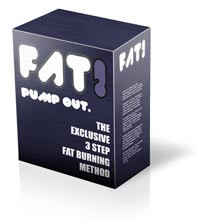 License Type: Giveaway Rights
License Type: Giveaway Rights  File Size: 5,157 KB
File Size: 5,157 KB File Type: ZIP
File Type: ZIP
 SKU: 21591
SKU: 21591  Shipping: Online Download
Shipping: Online Download
Ebook Sample Content Preview:
If you think that high cholesterol will cause heart diseases, then you really should educate yourself more and not believe everything the big pharmacy is telling you.
Trying to force your cholesterol level down too heavily might end up hurting you more than it helps.
To find out the main reason the cholesterol lie came about and why such an overwhelming number of people these days strongly believe that cholesterol is a bad thing, we have to go back 40 years in time. Back then, scientists were adamant on discovering the vital causes of heart diseases and block arteries. However, based on relatively incomplete data, they soon discovered that cholesterol seemed to be the trigger for these health conditions.
Excited by the discovery, tunnel vision soon set in to the whole medical field and many subsequent studies were discounted. Worse still, the lie about cholesterol being extremely harmful had already spread so far and wide that there was nearly no way to re-educate the masses anymore. Nonetheless, as we now know, the main cause of such symptoms is not the cholesterol itself but inflammation. In fact, cholesterol is not only far from being completely harmful but it also plays a pivotal role in keeping us healthy.
Cholesterol can't dissolve in the blood. It has to be transported to and from the cells by carriers called lipoproteins. Low-density lipoprotein, or LDL, is known as "bad" cholesterol. High-density lipoprotein, or HDL, is known as "good" cholesterol.
Although lowering good cholesterol is definitely something that we should aim for, many people make the mistake of not being able to differentiate between the 2 types and end up lowering the levels of good cholesterol in their body. It is important to note that such a mistake can turn costly as HDL, or good cholesterol, is an essential part of a healthy body.
About 25% to 35% of blood cholesterol is carried by high-density lipoprotein (HDL). HDL cholesterol is known as "good" cholesterol because high levels of HDL seem to protect against heart attack. Low levels of HDL (less than 40 mg/dL) also increase the risk of heart disease. Additionally, medical experts believe that HDL tends to bring cholesterol away from the arteries and back to the liver, where it's passed from the body. Some experts also claim that HDL removes excess cholesterol from arterial plaque, slowing its buildup.








